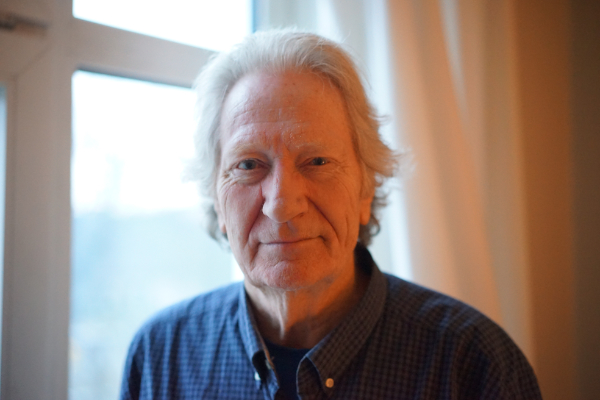Dirk C. Fleck

»the world does not belong to any particular species; it belongs to itself«
Dirk C. Fleck is an author and journalist based in Hamburg. His novel "Palmers Krieg. Thriller" (Palmer's War. Thriller) from 1992 was the first German-language book to shed light on the oil companies’ secret knowledge about climate change. Still today books are being written on the topic. Fleck’s next title made him famous; "GO! Die Ökodiktatur" (GO! The Ecodictatorship) deals with a future society dominated by radical ecological laws. In the science fiction scene, the work’s success was obvious: Dirk C. Fleck received the German Science Fiction Prize 1994 for the novel. The German news magazine "Der Spiegel", on the other hand, denounced the book, saying that it should be tossed into the recycling bin. Meanwhile, many of the political ecology concepts presented in the "Tahiti Trilogy" have become commonplace in the environmental and climate-related debates happening today.
»Whatever you do, whatever possible solutions you find, always observe the following principles. Firstly, the world does not belong to any particular species; it belongs to itself. Secondly, in this world, humans take their rightful place – as predators of the third or fourth ecological order. Their ability to intervene in ecological cycles does not change this status. Thirdly, the guiding principles of political economy from the period before the revolution must be subordinated theoretically and practically to the guiding principles of ecology that we have developed.«
When Dirk Fleck published "GO! Die Ökodiktatur", ideas like the Green New Deal and the Social Contract for a Great Transformation were still a distant future. Since then, the term “eco-dictatorship” has been adopted by populists and neo-liberals when their ideas about endless economic growth are confronted with the political challenge of global warming. In the meantime, the word of a sustainable economy as a real alternative has gotten around. But in 1993, Dirk C. Fleck found that no one else shared his concerns, and he gave up on writing novels. Only when the Equilibrists commissioned him 15 years later to write a utopian novel about an eco-republic did he find it in him to re-enter the field. In his trilogy, he transforms humanity’s frustrating mistakes, the technological failures and the political mismanagement of our CO2 culture into stories that tell of the possibility of an alternative.